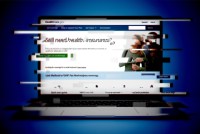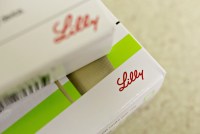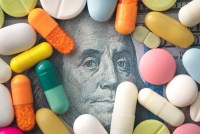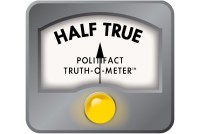Latest KFF Health News Stories
Trump Required Hospitals To Post Their Prices for Patients. Mostly It’s the Industry Using the Data.
Politicians have pushed for price transparency in health care. But instead of patients shopping for services, it’s mostly health systems and insurers that are using the information, as fodder for negotiations over pay.
Batalla para proteger a los pacientes de deudas médicas se traslada a los estados
A pesar de algunos avances este año, los recientes reveses en las legislaturas más conservadoras dejan claro lo difícil que es proteger a los pacientes.
As Trump Punts on Medical Debt, Battle Over Patient Protections Moves to States
Some states are enacting medical debt laws as the Trump administration pulls back federal protections. Elsewhere, industry opposition has derailed legislation.
Guía para encontrar seguro de salud a los 26
Es muy probable que tengas menos opciones en el mercado que las que tenías en el plan de tus padres. Prepárate para hacer cambios y concesiones.
A Guide To Finding Insurance at 26
It’s a difficult rite of passage for young adults without job-based insurance. Here are some tips for getting started.
Why Young Americans Dread Turning 26: Health Insurance Chaos
Young adults without jobs that provide insurance find their options are limited and expensive. The problem is about to get worse.
Surprise Medical Bills Were Supposed To Be a Thing of the Past. Surprise — They’re Not.
The No Surprises Act, which was signed in 2020 and took effect in 2022, was heralded as a landmark piece of legislation that would protect people who had health insurance from receiving surprise medical bills. And yet bills that take patients by surprise keep coming.
Trump’s DOJ Accuses Medicare Advantage Insurers of Paying ‘Kickbacks’ for Primo Customers
The Department of Justice alleges that several major health insurers paid brokerages “hundreds of millions of dollars in kickbacks” to get agents to steer consumers into their Medicare Advantage plans, allegations the insurers strongly dispute.
Proposed Rule Would Make Hospital Prices Even More Transparent
A Biden administration proposal would help standardize the data on prices that hospitals provide to patients, increase its usefulness to consumers, and boost enforcement. Previous rules gave hospitals too many loopholes.
States Step In as Telehealth and Clinic Patients Get Blindsided by Hospital Fees
At least eight states have implemented or are considering limits on what patients can be billed for the use of a hospital’s facilities even without having stepped foot in the building.
Decisión de Eli Lilly de bajar el precio de su insulina logrará cambios históricos en los costos
Expertos en precios de medicamentos celebraron la noticia de Eli Lilly y otros esfuerzos. Y estas otras iniciativas para llevar al mercado insulina de menor costo, a su vez, presionarían a Eli Lilly para que mantuviera sus precios bajos.
Eli Lilly Slashed Insulin Prices. This Starts a Race to the Bottom.
Eli Lilly’s news that it plans to cut insulin costs for patients will help, not hinder, the recent efforts in California and by entrepreneurs such as Mark Cuban to offer lower-cost alternatives, drug pricing experts said.
Readers and Tweeters Diagnose Greed and Chronic Pain Within US Health Care System
KHN gives readers a chance to comment on a recent batch of stories.
Nueva herramienta ayudaría a comparar costos de hasta 500 servicios médicos
Desde el 1 de enero, las aseguradoras y los empleadores que ofrecen planes de salud deben proporcionar calculadoras en línea para que los pacientes obtengan estimaciones detalladas de lo que deberán por una variedad de servicios y medicamentos, teniendo en cuenta sus deducibles y copagos.
Want a Clue on Health Care Costs in Advance? New Tools Take a Crack at It
Another effort to make upfront cost comparisons possible in an industry known for its opaqueness: an online tool for consumers to get some idea of what they may pay for medical care.
Employers Use Patient Assistance Programs to Offset Their Own Costs
Some insurers and employers are tapping into assistance programs meant for individual patients. The concern: Some costly drugs could be harder for patients to access.
A Billing Expert Saved Big After Finding an Incorrect Charge in Her Husband’s ER Bill
A medical billing specialist investigated her husband’s ER bill. Her sleuthing took over a year but knocked thousands of dollars off the hospital’s charges — and provides a playbook for other consumers.
Private Equity Sees the Billions in Eye Care as Firms Target High-Profit Procedures
As private equity groups are swarming into aging America’s eye care, the consolidation is costing the U.S. health care system and patients more money.
The $18,000 Breast Biopsy: When Having Insurance Costs You a Bundle
An online calculator told a young woman that a procedure to rule out cancer would cost an uninsured person about $1,400. Instead, the hospital initially charged almost $18,000 and, with her high-deductible health insurance, she owed more than $5,000.
Rapper Fat Joe Says No One Is Making Sure Hospitals Post Their Prices
A TV and social media ad offers a reason to check on the enforcement of a sweeping rule that requires hospitals to post information about what they charge insurers and cash-paying patients.






















